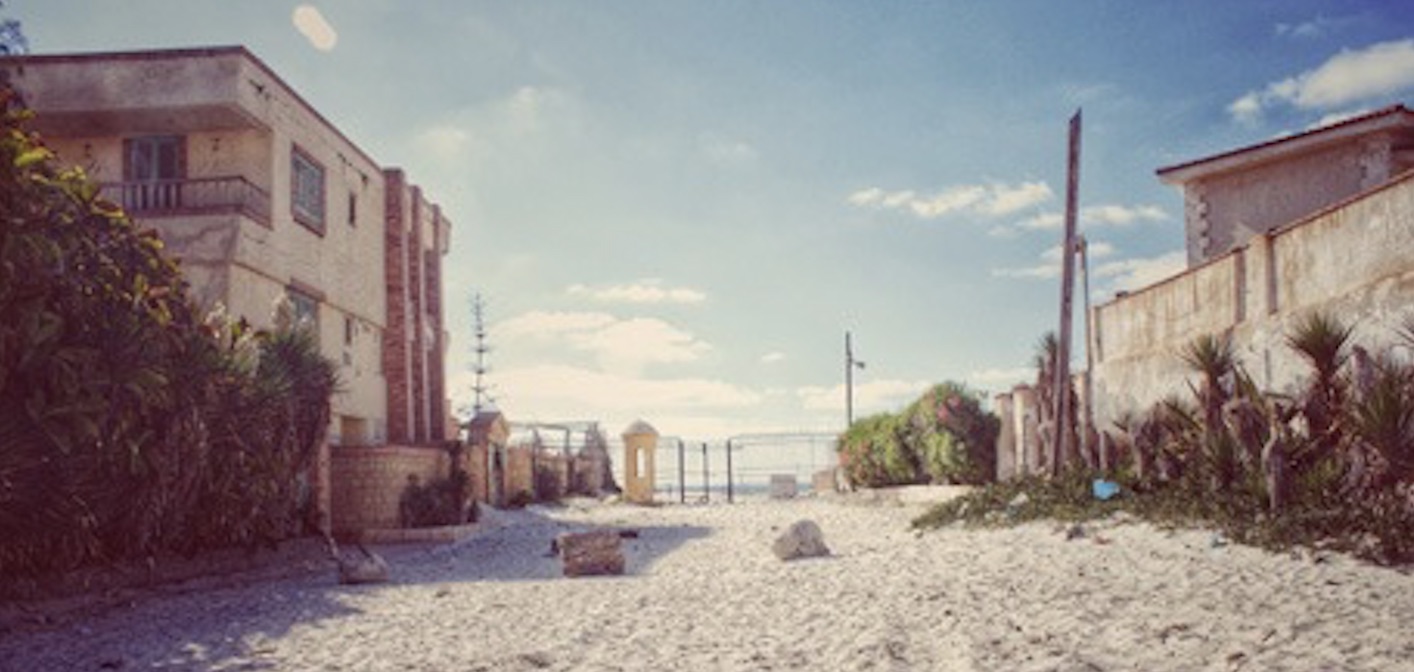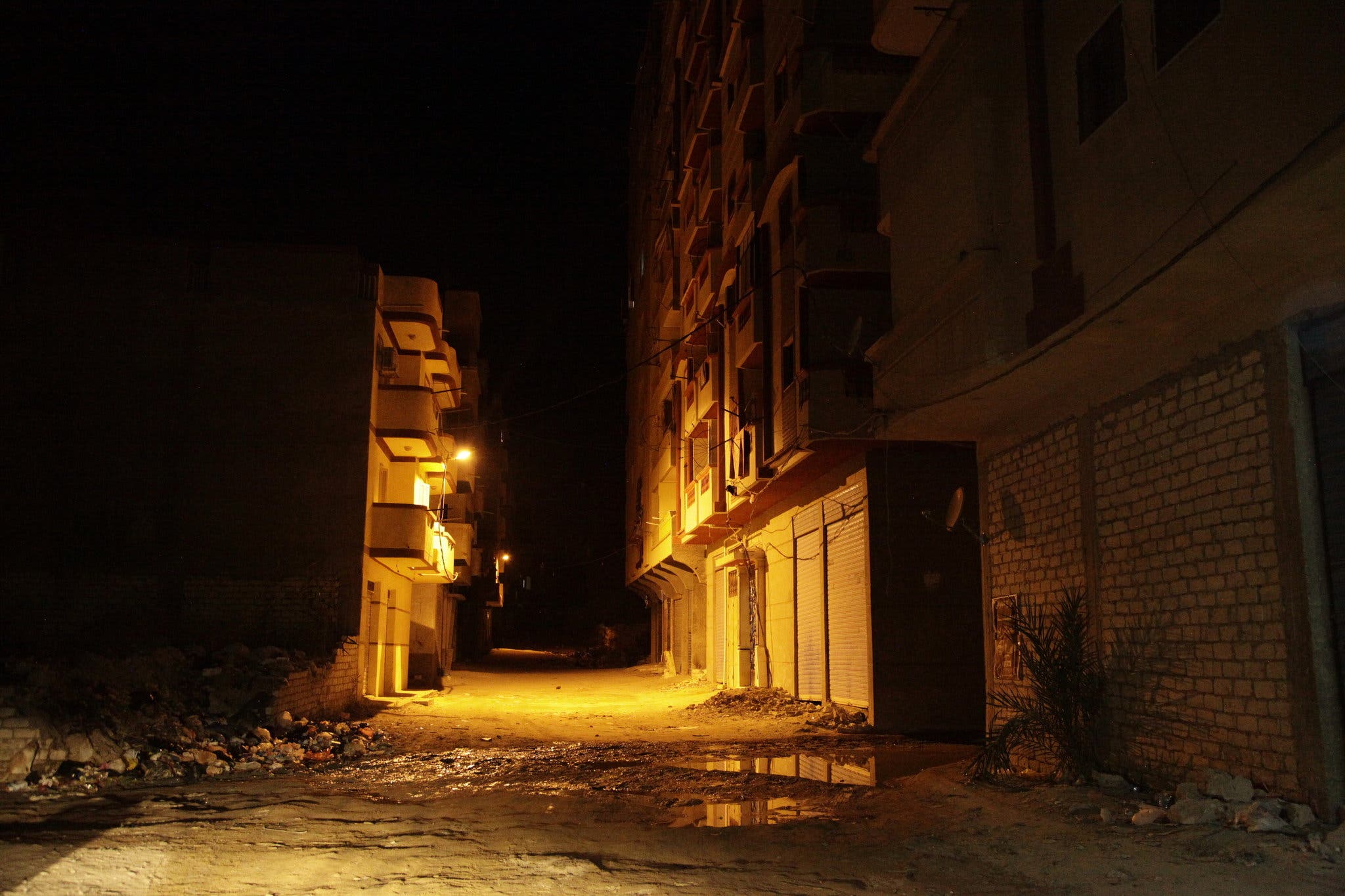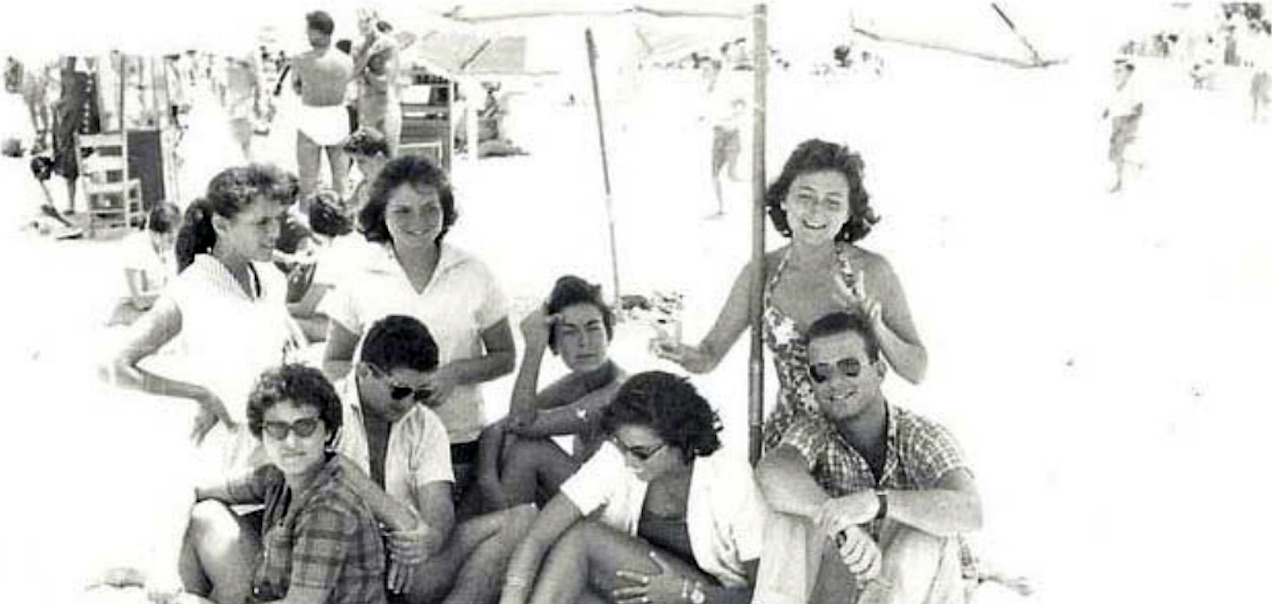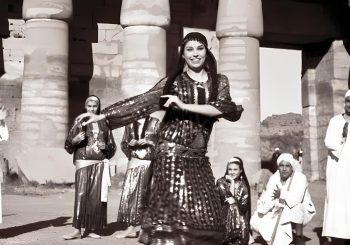There is a place covered in smells of nostalgia, where the waters sparkle in turquoise blue and glistening sunbeams slip through the days of simple pleasures. A beach passed down from generation to generation, carrying tales of midsummer dreams and plays: this is the story of Egypt’s once-glistening summer gem, Al-Agami beach.
“A once-shimmering golden mirage.”
Although not frequented as before, Al-Agami beach was the destination to escape from the busyness of the city. It was a summer dream, a playground for the city’s escapers, now overshadowed with urban expansion along the North Coast.
“We had our house from the early 1980s, I’ve been going there ever since I was a few months old, and I grew an inexplicable attachment to Al-Agami beach. Some of my best childhood memories were carved there,” recounts 26-year old Maryam Nouhy, who works as a translator.
In its heyday, Al-Agami was an escape for Egyptians in the 1950s and 1960s. It hosted an array of different people during the summer days – ambassadors of Argentina, France, Italy, and Romania, and celebrities such as Abdel Halim Hafez, Faten Hamama, and Samir Sabri also spent their summer months there.
Al-Agami is supposedly named after Sheikh Mohamed bin Agami, who came to Egypt from Morocco and resided with his students on a small island across from Al-Agami.

“The origin of names is a complicated matter in Alexandria, but what we are sure of is that Sheikh Agami is buried on the island, and people still pay visits to his shrine today,” reports Islam Assem, a professor of history at the Higher Institute of Tourism at Abu Qir in Alexandria.
“Al-Agami is also the first spot [Napoleon Bonaparte] saw when he invaded Egypt at the head of French troops in July 1798,” explains Assem.
Al-Agami became a “unique melting pot” for Egyptians, a family-oriented summer playground. However, winds of change started from the 2000 onwards, when original residents started selling their villas and moving to gated compounds in other parts of the North Coast.
“When people started going to sahel [a word used for the trendier compounds on the Egyptian North Coast], my grandma thought about selling the house, but I was adamant at keeping it. Something told me that although our friends sold their houses, that we would be back someday,” Nouhy says.

The government focused on expanding compounds in the North Coast, at the time when villas in Marina, one of the largest and for a time most popular North Coast compounds, were still being constructed. Soon, Al-Agami became a sprawling area with unpaved narrow alleys that reek of sewage water that became a hassle, so people started seeking other alternatives, preferring private and more gated communities.
So residents started seeking other alternatives.
“I sometimes still visit Al-Agami with my friends; however, the area we have our house in is the only place that still has upkeep, so it’s not as ruined as the other places that were once shimmering,” Nouhy says.
Lamenting the loss of Al-Agami is a pastime for its once-loyal visitors, decked in the hearts of many, the old, shining Al-Agami still lingers.






Comments (2)
[…] upkeep does not only concern Al-Maamoura, but also other areas in Cairo and beyond. Alexandria’ Al-Agami beach also fell victim to a lack of maintenance and care, which also suffered from unpaved narrow alleys […]
[…] upkeep does not only concern Al-Maamoura, but also other areas in Cairo and beyond. Alexandria’ Al-Agami beach also fell victim to a lack of maintenance and care, which also suffered from unpaved narrow alleys […]